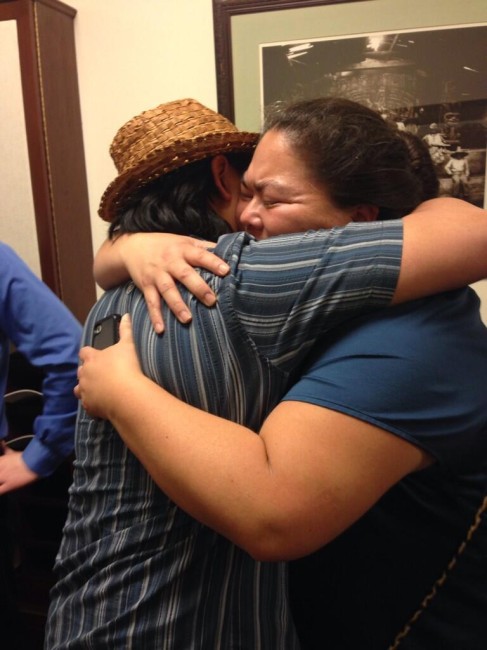 |
| (Photo by Skip Gray/Gavel Alaska) |
Currently, Alaska is facing its own language landmark. Yesterday, the Alaskan senate passed a bill to make 20 indigenous languages legal languages of the state alongside English. It doesn't change how their government will conduct business, but it offers the legitimacy and credibility that so many indigenous speakers yearn for. Here are some words from the floor:
“I sit here as your peer. I sit here as your equal. We may speak different languages, but mine is just as valuable, just as necessary, and just as useful as yours," -University of Alaska Southeast Native Languages Professor Lance Twitchell
“Language and culture go together and they cannot be separated,” -Bethel elder Esther Green
“Our language is everything. It’s the air we breathe. It’s the blood that flows through our veins.”
“There’s a statewide movement to prevent the extinction of Alaska Native languages and promote the revitalization of Native languages, and this recognition quite simply means the world to a lot of people...if a symbolic bill can create a sense of energy and momentum and excitement, then the bill in a certain sense achieves its purpose.” -Rep. Jonathan Kreiss-Tomkins, D-Sitka
“...to engage in conversation, learn the language, the heritage of their elders. Learn the stories of what Alaska was, so they know how to make Alaska a better place”
One of the main criticisms to this bill was basically the fear that if they pass it, people will want their indigenous language to be recognized as legally equal to English. Like, they will want the government to actually DO something about it. And that's tough. Speaking from personal experience, it takes a certain kind of crazy to come right out and say "I don't approve of native tongues", but, its takes a certain, different kind of crazy to actually stand up and say "this should be recognized and anything less than equal is unjust and unacceptable." Most people fall into the very quiet grey area, which isn't exactly helpful if you are facing cultural oppression.
 |
| (Photo by Casey Kelly/KTOO) |
I get so bogged down and annoyed by the red-tape in front of me that I often forget how far Hawaii has come. Hawaiian activists paved the road and made real the dream so many indigenous peoples across the US have in their hearts - to be seen.
In Hawaii, we are constantly struggling to overcome the prevailing notion of Hawaiian as "decorative". Sure, people want to hear it when they visit, but they don't want to have to FUND it with their tax dollars. And though we have laws that symbolically protect our right to speak Hawaiian, we don't have a ton of higher-ups who understand those laws or are willing to enforce and apply them fairly. However, we can teach Hawaiian in public schools, we can write checks in Hawaiian, and we can hear it on the bus, the radio, at church, in the airport, etc. We can argue against forced assimilation and actually have a legal leg to stand on. These paltry offers are in fact pretty big deals, because a lot of indigenous peoples don't even have that much.
At the end of the day, I'm happy for Alaska and I'm proud to live in this imperfect state, with its imperfect system. As long as someone is still fighting, as long as someone is still saying "Aia ma 'ane'i kakou!" then I suppose I can look at it as progress, however slow and frustrating it may be.
No comments:
Post a Comment